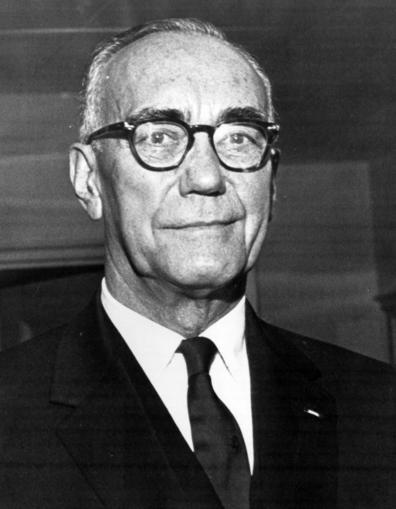- William Henry Draper, Jr.
Infobox Person
name = William Henry Draper Jr.

image_size=180px
caption = U.S. army officer, banker, and diplomat
birth_date = birth date|1894|8|10|mf=y
birth_place =Harlem, Manhattan New York ,United States
dead=dead
death_date = death date and age|1974|12|26|1894|8|10|mf=yWilliam Henry Draper Jr. (
August 10 1894 —December 26 1974 ) was a U.S. army officer, banker, and diplomat.Draper was born in
Harlem, New York City , and received a B.A. and M.A. in economics atNew York University .He joined the
United States Army soon after finishing college and served duringWorld War I as a major in the infantry. After the war he stayed in the Army Reserves working his way up to chief of staff of the 77th Division (1936–1940), while going to work in New York City for National City Bank (1919–1921), Bankers Trust Company (1923–1927), and thenDillon, Read & Co. (1927–1953). In 1937, he was made a vice president of Dillon Read, an investment bank that had underwritten millions of dollars of German industrial bonds in the United States between the world wars.A supporter of
eugenics , Draper sponsored the third "International Conference on Eugenics " was held in New York's American Museum of Natural History under the supervision of the International Federation of Eugenics Societies. [ [http://www.spiritone.com/~gdy52150/betraylp9.htm A Pledge Betrayed: John McCloy ] ]At the invitation of
George Marshall , he moved toWashington, D.C. to serve on the President's Advisory Committee forSelective Service , and was promoted to colonel (May 15 ,1940 ).At the start of
World War II he took command of the 136th Infantry, 33rd Division, National Guard (1942–1944). At the end of the war, he was promoted to brigadier-general (January 1 1945 ) and was posted to Berlin to serve as chief of the Economics Division,Allied Control Council for Germany (1945–1947). He opposed theMorgenthau Plan , which was designed to prevent a resurgence of German economic and military power, and strongly supported measures to expedite Germany's economic recovery, even if that meant leaving former Nazi supporters in high positions in industry. [ [http://www.amazon.com/gp/product/B0000EEKBR/ All Honorable Men: James Stewart Martin; Little, Brown, and Co. (1950).] ]After a promotion to major-general, Draper was asked by the new Secretary of War Kenneth C. Royall to become his
under secretary of War (August 29 ,1947 ). With the transition of the Department of War to the Department of the Army, Draper became the firstunder secretary of the Army (September 18 ,1947 —February 28 ,1949 )After leaving the army in 1949, he served as
Long Island Rail Road trustee from 1950 to 1951. He served as the first U.S. Ambassador to NATO inParis (April 1953 - June 1953).After retiring from public service a second time, he traveled to
Mexico to serve as chairman of theMexican Light and Power Company (1954–1959).Returning to the US in 1959, he formed the first West Coast
venture capital firm,Draper, Gaither and Anderson , inCalifornia .In 1967 he retired from Draper Gaither, moved to Washington, D.C. and joined
Combustion Engineering in New York as chairman, retiring a few years later to become the U.S. delegate to the United Nations Population Commission (1969–1971). He also co-founded the Population Crisis Committee in 1965 and chaired theDraper Committee .References
External links
* [http://www.trumanlibrary.org/oralhist/draperw.htm Oral History Interview with General William H. Draper Jr.]
* [http://time-proxy.yaga.com/time/archive/preview/0,10987,806264,00.html Time Magazine "Topside Teammates"] Jan. 28, 1952
Wikimedia Foundation. 2010.
